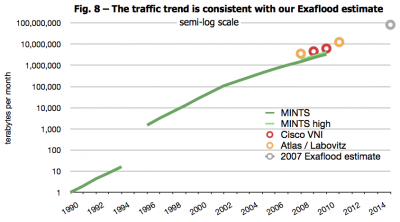See our new report “Into the Exacloud” . . . including analysis of:
> Why cloud computing requires a major expansion of wireless spectrum and investment
> An exaflood update: what Mobile, Video, Big Data, and Cloud mean for network traffic
> Plus, a new paradigm for online games, Web video, and cloud software

